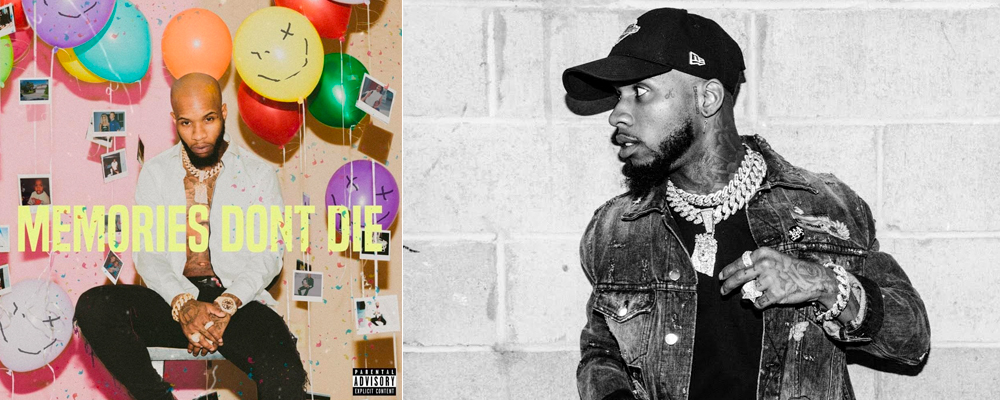Tory Lanez Celebrates Success While Recalling Roots on ‘Memories Don’t Die’
Donn Swaby
There is something to be said for staying true to oneself, for sticking to what one knows and doing it to the best of one’s ability. Such is the case with Grammy-nominated Canadian rapper Tory Lanez whose second album, “Memories Don’t Die,” a follow up to his debut album, “I Told You,” continues in Lanez’s own personal brand of rap and R&B fusion, which he calls “Swavey.”
Clocking in at a sizeable length of 17 songs, “Memories Don’t Die,” which features guest artists such as 50-Cent, Future and Wiz Khalifa, has all the markings of a well-produced trap beat album, musically delivering a radio-friendly recipe of upbeat tempo grooves, creeping synth lines, booming bass and staccato high-hat triplets to accompany Lanez’s vocal flow.
Throughout, Lanez’s central theme seems to be less a declaration of triumph over childhood trauma and abject poverty and more a celebration of material wealth as a form of revenge against all those naysayers who dared to mock him, as when, in the intro track, “Memories,” he states, “Remember me for being laughed at / The kid with no cash when he asked for the cash / People die every day / But the memories don’t.”
In the song, “Hate to Say,” Lanez makes no bones about having to survive some of the toughest situations in his childhood, as when he raps, “I remember us living not too far from the junkees / The flunkees that tried to to punk me on corners but never sung me.”
In much of the album, Lanez confidently boasts of his accomplishments, as in the song “Don’t Die,” when he raps, “I’m the greatest, I’m the people’s favorite / Thanks to God’s graces, I been number one in all these peoples’ faces.” Yet, what fuels Lanez’s swagger is what he reveals in this song to be his driving motivation; to achieve success in honor of his late mother, who’d tragically died of a rare illness when he was a child, as when he raps, “If she was here, I’m thinkin’, what would my mom say? / She’d say, I’m well accomplished, she’d say I really did it.”
Nowhere else is this sentiment more poetically underscored than in the song, “Happiness” where Lanez calmly recalls the childhood memory of when his father told him his mother had died. Here, Lanez plainly speaks the truth straight from his heart when he states, “…when I’m thinking ’bout my mother, Luella Peterson / I, I call it, uh, true happiness.”
Though Lanez may have had a strong desire to achieve his present-day success, he seems only too aware of its pitfalls, as in the song, “Old Friends x New Foes” where he raps, “Old friends become strangers / New friends become dangerous.” However, he makes it clear this won’t prevent him from enjoying what he has, as when he raps, “Never does it ever let me down / ‘Til you have real friends.” As also evidenced in the song “4 Me,” Lanez does not shy away from advocating love of self over trying to please others, as when he raps the lines, “Clean up, look good… I do that for me” and “Now I, go out, turn up, I do that for me / Say less, spend money, I do that for me.”
The remainder of the album, however, veers away from Lanez’s adamant acclamation of his hard-won prosperity into the clichéd, well-worn territory of hyper-masculinity, misogyny and sexual bravado as in the songs, “Connection,” “48 Floors,” “Dance for Me,” “Real Thing,” “Benevolent,” and “Skrt-Skrt.”
Still, Lanez manages to inject just enough heartfelt substance into the rest of his lyrics to illustrate why he has been able to rise to a high level of stardom while never forgetting it was his overcoming of life’s most difficult challenges that transformed his condition from a state of merely surviving to truly thriving.
“Memories Don’t Die” is available March 2 on Apple Music.

